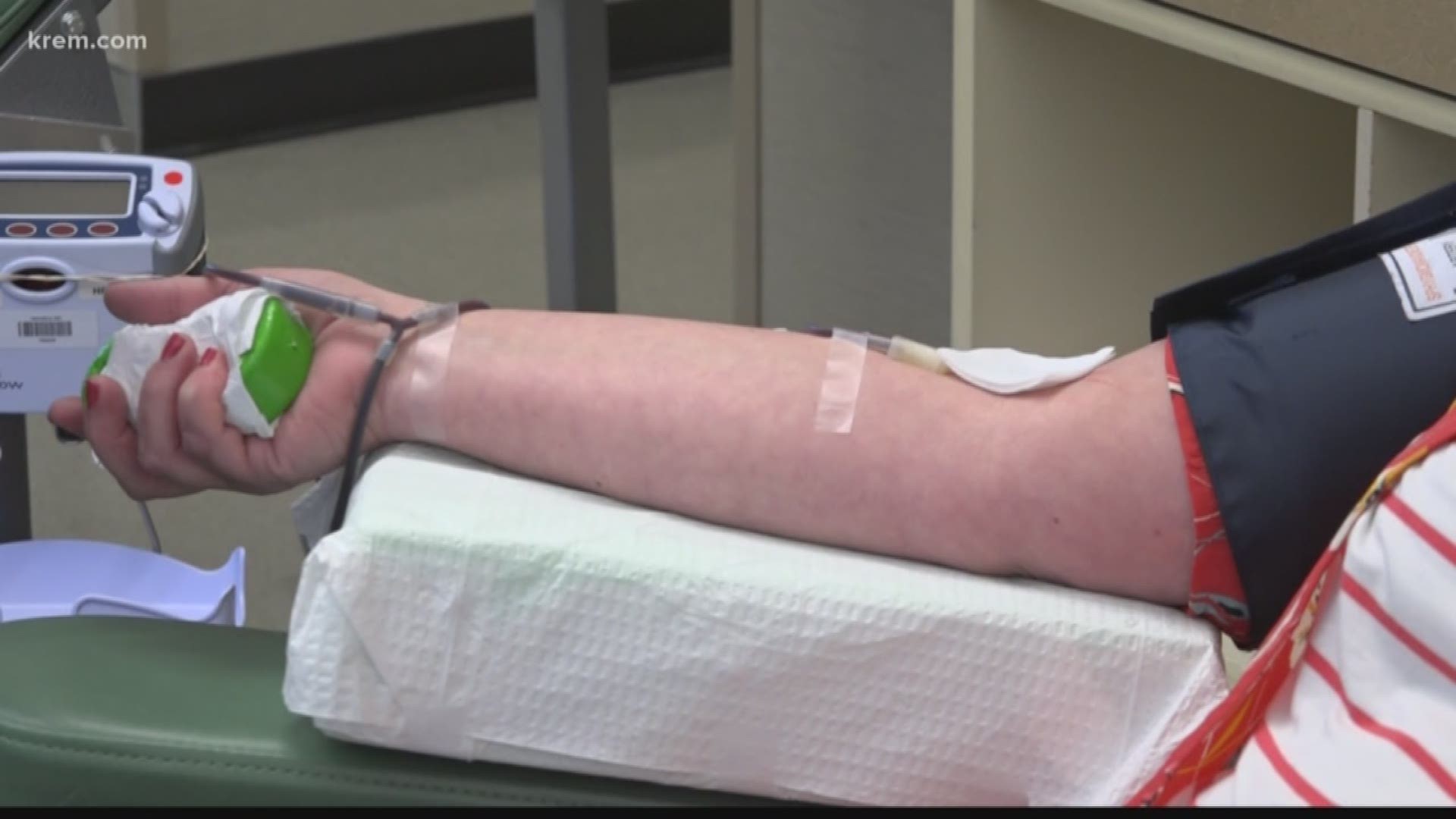SPOKANE, Wash. — Editors note: The above video is about blood donors receiving text alerts about how their blood is used.
Blood bank supplies are critically low in the Inland Northwest due to the stay-home order, but the need for donations has risen by 25%.
Vitalant, the sole blood supplier to the Inland Northwest, declared a critical shortage on Thursday, explaining more than 250 blood drives have been canceled in Idaho and Washington since early March due to stay-home orders. They lost an estimated 5 thousand donations in the last three months.
However, since non-essential medical procedures and surgeries have resumed in the state of Washington, the need for blood donations has risen dramatically.
“We strive to maintain a four-day supply of blood just to provide what patients need, and currently we’re at less than half that for certain blood types,” said Dr. Ralph Vassallo, Chief Medical Officer at Vitalant. “It’s absolutely vital — a matter of life or death for some— to have enough blood collected and readily available on hospital shelves when patients need it.”
Vitalant is in critical need of all blood types, with an especially high need for type O, A-negative, and B-negative red blood cells. Platelets are also needed for by patients for cancer treatments, surgeries, and emergencies, due to their short shelf life - they only last five days.
The U.S. Surgeon General and Federal Emergency Management Agency (FEMA) have designated blood donation as an essential activity, encouraging healthy and eligible donors to continue to donate even amidst COVID-19 response measures.
Vitalant says they have also introduced multiple safety measures to protect staff and donors from the coronavirus:
- Taking donors’ temperatures upon check-in (staff self-monitor their temperatures)
- Requiring face masks or cloth-based face coverings (donors and staff)
- Disinfecting donor-touched and other high-touch areas often and after every donation
- Ensuring social distancing to keep donors and staff safe.
You can find the closest blood donation center near you on Vitalant's home page.

